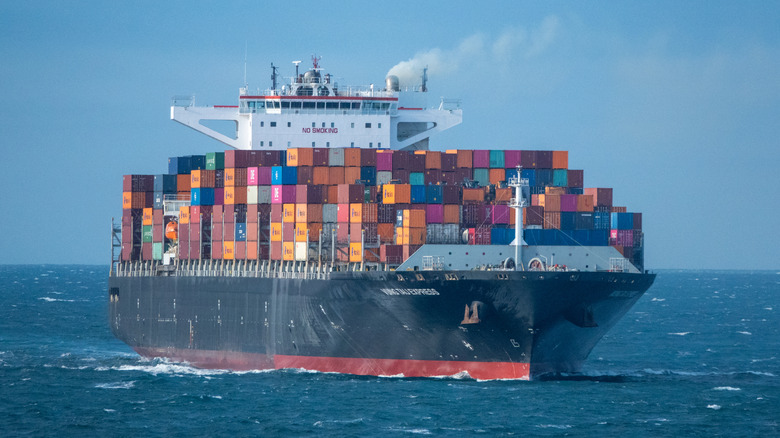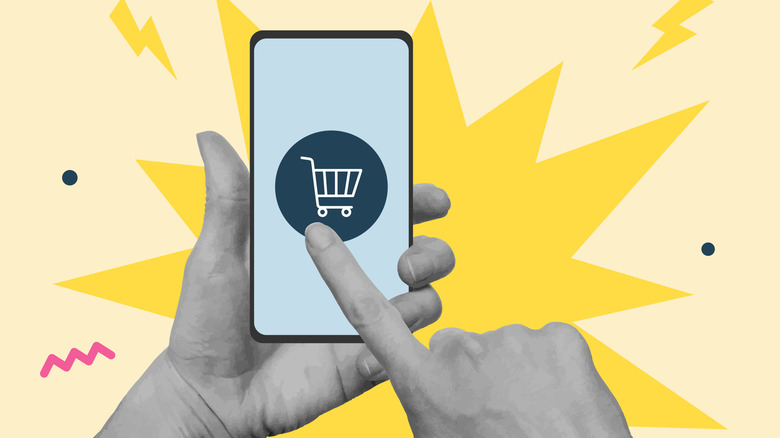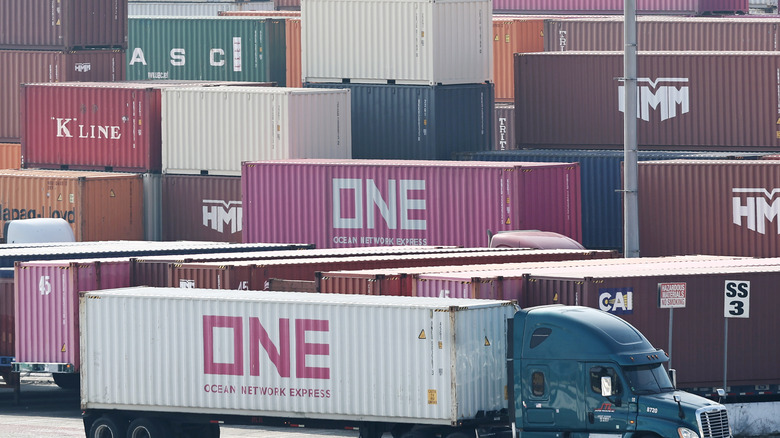Be Prepared: You Might Want To Buy These Items Before Tariffs Take Effect
President-elect Donald Trump, the self-proclaimed "Tariff Man," has long favored higher tariffs on imported goods as a show of brute force on the global stage, and a boon to American industry. He imposed higher tariffs on some imports in his first presidential term, and has promised (or threatened) even more extreme tariffs in his second term. Economists, business leaders, and the Fed are bracing for President-elect Donald Trump's proposed tariff policies in 2025, but the average American consumer may not be ready for the financial impact of a trade war.
By now, you've likely tuned into what tariffs are, who pays for them, and how tariffs might impact your family's budget. But to review, tariffs are import taxes levied against other countries. In theory, tariffs are implemented in order to encourage domestic manufacturing and to promote domestic product consumption over imports. Tariffs can also act as a political power move when it comes to regulating trade, or starting trade wars — which will feel like price wars to consumers.
Tariffs can lead to inflation, supply chain disruptions, lost jobs, as well as mounting global geopolitical and economic tensions. Even if all of those listed effects are transitory and temporary, for at least some time, tariffs mean Americans will pay higher prices for certain goods. Read on to learn how you might be able to prepare for the impacts of tariffs by purchasing certain goods ahead of their implementation, as well as what might affect your plans.
Buying ahead of tariff price hikes
The most conservative of Trump's proposed second-term tariffs include a 25% levy on Mexican and Canadian imports, with higher tariffs on Chinese imports, promised to be implemented on inauguration day. Talk is very big right now, but prepared shoppers may feel easier about the pending changes by buying certain imported goods before the tariff hammer hits hard.
Plenty of produce, spices, cocoa, and coffee are imported from other countries. For example, China is the world's leading supplier of garlic, responsible for 80% of the tasty allium used to season all manner of food products. While perishable prices will certainly be affected by the proposed tariffs, buying these items ahead of time is entirely dependent on proper pantry and cold storage space. Rather, you might focus on goods that can stand a longer test of time.
Washers, dryers, and refrigerators are all essential needs, and all are fully made by or with components from countries that will be affected by tariffs. Additionally, furniture, cellphones, video games, computers, and other electronic accessories will face post-tariff price hikes. Clothing, toys, and furniture also face potentially steep price increases. Those who can make major gift purchases this holiday season might do well to make it count. If wondering whether to finally replace a major appliance or update a home office before the new year or after, the threat of 10%-60% tariffs Trump promised on the campaign trail might make these financial decisions for you before 2025 arrives.
Beware of purchasing panic and other considerations
To err is human, and to stockpile in times of uncertainty is even more so. Fear and panic are powerful fuel on the emotional shopping fire. Anyone who bought toilet paper in 2020 should know, panic buying can have serious consequences on the global supply chain, prices driven by supply and demand, and your own bank account.
You surely don't want to consider the finer points of shipping and logistics every time you make a shopping list, but know that panic purchasing is happening (or will happen) at a personal and business level before tariffs become certain. Ocean trade (container shipping) and rail modes of shipping are often slow processes on a good day. But during times of rush and worry, delivery times may slow to a creep and deadlines will be blown, services that used to come standard may now carry a premium, and both stock and variety will vary greatly if everyone treats every imported good like, well, the country treated toilet paper during the COVID-19 lockdown era.
Be careful not to submit to manic impulses by thinking you can buy your way out of what could be a prolonged global trade crisis, or a minor period of regime change that could still have a major impact on American wallets. Buy what you need. Keep a cool head and closed wallet when you can, at least until some of the smoke of uncertainty clears.


